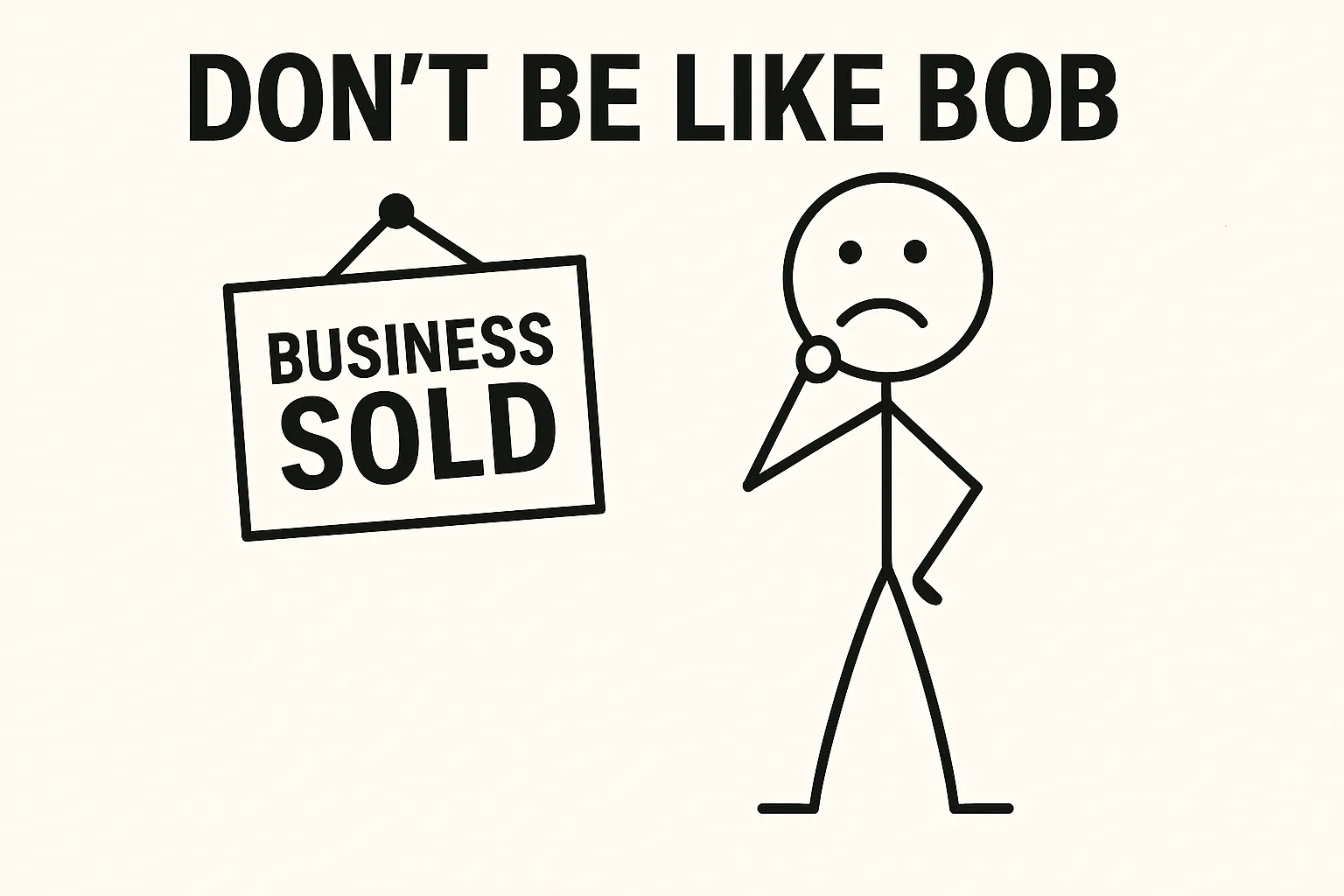Mailing List
To help us keep you updated with our handy guides and other useful news, please consider signing up to our mailing list.
It's quick and easy, and we promise not to send you spam or share your details with third parties.

This is Bob. Bob set up a small business 25 years ago, grew it into a much larger business with several million pounds of annual turnover, and has just sold it. Bob is feeling quite pleased with himself.
Unfortunately, Bob has made the following key mistakes, which could mean that instead of retiring to Spain and playing golf, Bob might be swapping sangria for instant coffee and perfecting his swing at the local crazy golf course.
Not engaging with a reputable corporate finance adviser
When Bob mentioned that he was thinking about selling, a bloke from the pub made him an offer. Bob had no idea what his business was worth, but it sounded like a lot of money, so Bob said “yes”. If Bob had taken advice from a corporate finance adviser, he would have realised that businesses like his are currently selling for a lot more than he was offered. His business would then have been (confidentially) offered to a targeted group of potential buyers to make sure that he got the best possible price.
But he didn’t. Don’t be like Bob.
Not preparing the business for sale
Bob has a bit of a thing for Kirstie Allsop, and never misses an episode of ‘Location, Location, Location’. Bob knows that if you want to get the best value when selling your house, it’s a good idea to tidy up the front garden, give the place a lick of paint and put a pot of coffee on the stove before a potential buyer comes for a viewing. Unfortunately, Bob didn’t realise that the same principles apply to a business sale, so it was left to his buyer to spot that Bob’s terms and conditions of business were hopeless, half his employees didn’t have contracts, and there was a nasty repair clause in the lease.
Bob’s buyer then reduced the price. Don’t be like Bob.
Taking the cheapest possible legal advice
Bob had a look in ‘Legal 500’ and ‘Chambers and Partners’ and found that there were a small number of highly recommended solicitors in his area who specialised in business sales. They all gave Bob similar estimates for legal fees. Bob thought this sounded like a lot of money, so he spoke to Dingus & Co., who were a lot cheaper. Despite working on his own, Mr Dingus “looks after all your legal needs”. Bob thought Mr Dingus must be an awfully clever chap to know all about so many different areas of law. It didn’t occur to Bob that it wasn’t a great idea to trust the sale of his business to someone who doesn’t do a lot of that kind of work.
Mr Dingus didn’t explain that a poorly drafted sale agreement can leave a seller having to repay a large part of the purchase price if the buyer finds problems with the business after completion. Don’t be like Bob.
Not considering the tax implications
Bob’s mate Dave told him that if he sold his shares, he’d only pay 10% tax because of something called “Entrepreneurs Relief”. Bob took this at face value and didn’t take any professional tax advice. So, Bob didn’t realise that Entrepreneurs Relief became “Business Asset Disposal Relief (BADR)” in 2020. Or that the effective capital gains tax rate under BADR is currently 14% (rising to 18% in April 2026). Or that this only applies to the first £1m of qualifying lifetime gains. Or that Bob doesn’t even qualify for BADR.
Bob is going to have to pay capital gains tax at 24% on the gain he made on his sale. This is going to make a big dent in the amount he ends up with. Don’t be like Bob.
Not reading the restrictive covenants
Bob accepted an offer for less than his business was worth. He then ended up being paid even less, because he’d not sorted out the problems before starting the sale process. He owes HMRC a lot more tax than he’d thought possible. And he’s now facing warranty and indemnity claims from his buyer, which could mean he has to repay most of the sale proceeds. Bob can’t afford to retire after all.
Bob thought he could cope with these problems by setting up a new company doing the same thing as before (because that’s the only business he really knows). But Mr Dingus didn’t tell Bob that there are non-compete clauses in the business sale agreement that prevent Bob from doing this for at least 3 years.
Bob now has no business, no money and no way of earning a living. Don’t be like Bob.
The corporate & commercial team at BHW are Tier 1 ranked by Legal 500 and Band 1 ranked by Chambers & Partners. Legal 500 has accredited three of the team with “Leading Partner” status, one with “Next Generation Partner” status and one with “Leading Associate” status.
If you’re selling your business, instruct BHW Solicitors. Don’t be like Bob.
Categorised in: Blog, Corporate and Commercial, News, Succession Hub
Tags: BHW Solicitors, Business Sale, Company Law